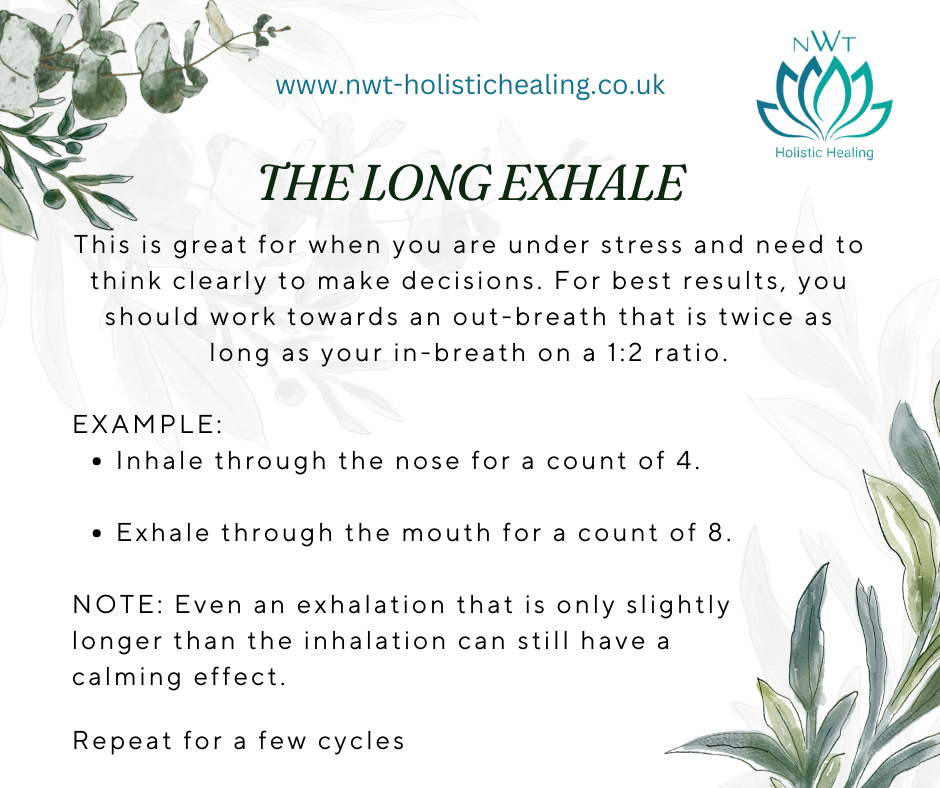WHAT IS THE AUTONOMIC NERVOUS SYSTEM?
The Autonomic Nervous System (ANS) is a control system in the body that operates without conscious effort. There are two branches of the ANS, which are the sympathetic and parasympathetic systems. The sympathetic is coined the Fight or Flight as this is the body’s red alert siren which creates a response ready for situations that require alertness, energy, and strength. When activated, the sympathetic system inhibits functions that are less important when faced with imminent danger, such as digestion, bladder or bowel control, creativity, or higher thoughts, such as pondering the meaning of life. Conversely, the parasympathetic system has the opposite effect, signalling that the body is safe: Rest & Digest or Feed & Breed. When the parasympathetic system is activated, it tells the body to conserve and restore, and it provides access to areas of the brain that may ponder higher or more complex thoughts and creativity.

THE VAGUS NERVE
Our nervous system is made up of over 100 billion nerve cells, which send information via a two-way communication system from the brain to the body and vice versa. An important superhighway for this communication is done through the vagus nerve. The vagus nerve is the longest nerve of the ANS. Vaga in Latin means “to wonder”, as this nerve wonders around the body, impacting major organs. The vagus nerve controls involuntary bodily processes such as breathing, speech, swallowing, blood pressure, hearing, taste, pupil dilation, circulation, digestion, gut health, urination, sexual arousal, orgasms, and fertility.
The vagus nerve is a major source of parasympathetic fibers. When the vagus nerve is fully functioning, we have access to the part of the brain that is responsible for creativity, high-level thought, and complex decision-making. When the vagus nerve is not functioning optimally, the sympathetic system is triggered, and we may only access the part of the brain that controls primal instincts such as fear, fight, or flight.
WHAT CAN WEAKEN THE FUNCTION OF THE VAGUS NERVE?
The functioning of the vagus nerve can be impaired by stress, anxiety, overworking, a poor lifestyle, smoking, drinking, a lack of exercise, poor nutrition, and inadequate sleep. When the vagus nerve cannot function fully, the body and mind may become susceptible to a range of conditions, such as depression, anxiety, obesity, cardiovascular problems, hypertension, diabetes, digestive dysfunctions, chronic inflammation, kidney malfunction, infertility, and even autoimmunity.
There are natural ways to stimulate the vagus nerve and activate the parasympathetic system, such as through meditation, Tai Chi, qigong, yoga, singing, and chanting, but one of the most effective and accessible ways to stimulate the vagus nerve is through breath.
THE WAY WE BREATH CAN ENHANCED OR IMPAIR OUR WELLBEING
Despite breathing being an automatic and subconscious function, we are often unaware of how our breath can enhance or impair our wellbeing. When we breathe heavy and fast, we activate our sympathetic nervous system and flood the bloodstream with stress hormones such as cortisol, adrenalin, and norepinephrine in readiness to defend ourselves from a perceived threat. Habitual breathing in this way may cause or compound anxiety, stress, digestive issues, bladder dysfunction, immune problems, and fertility issues.
When we breathe slowly and deliberately, the vagus nerve gathers signals from multiple organs in the body that there is no threat. It then passes this message to the brain, which in turn sends out a signal confirming that all is well, safe, and you may relax. When this happens, relaxing hormones such as dopamine, serotonin, oxytocin, and endorphins are released into the bloodstream.
THE SAME BUT NOT EQUAL
Nasal breathing kills bacteria and viruses through its complex system of fine hairs and mucus, it also relaxes the blood vessels in the respiratory tract, allowing more oxygen to be absorbed into the blood. In addition to this, breathing through the nose allows us to draw in more oxygen from the air than when breathing through the mouth. Breathing exercises can increase stress resilience, improve immunity, improve digestive functioning, improve focus, speed up recovery from exercise, enhance creativity, enhance memory retention and recall, and deepen relationships.







